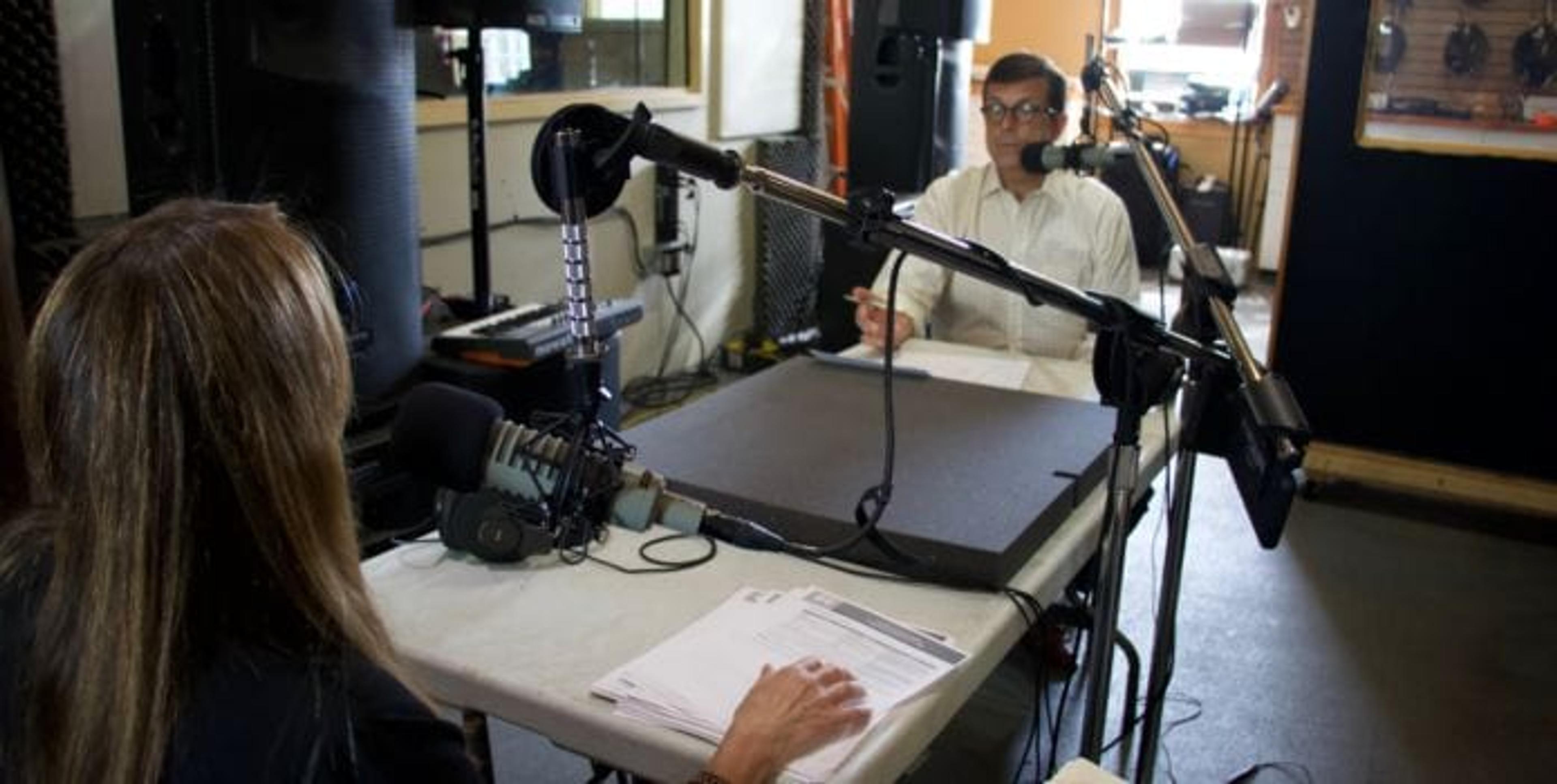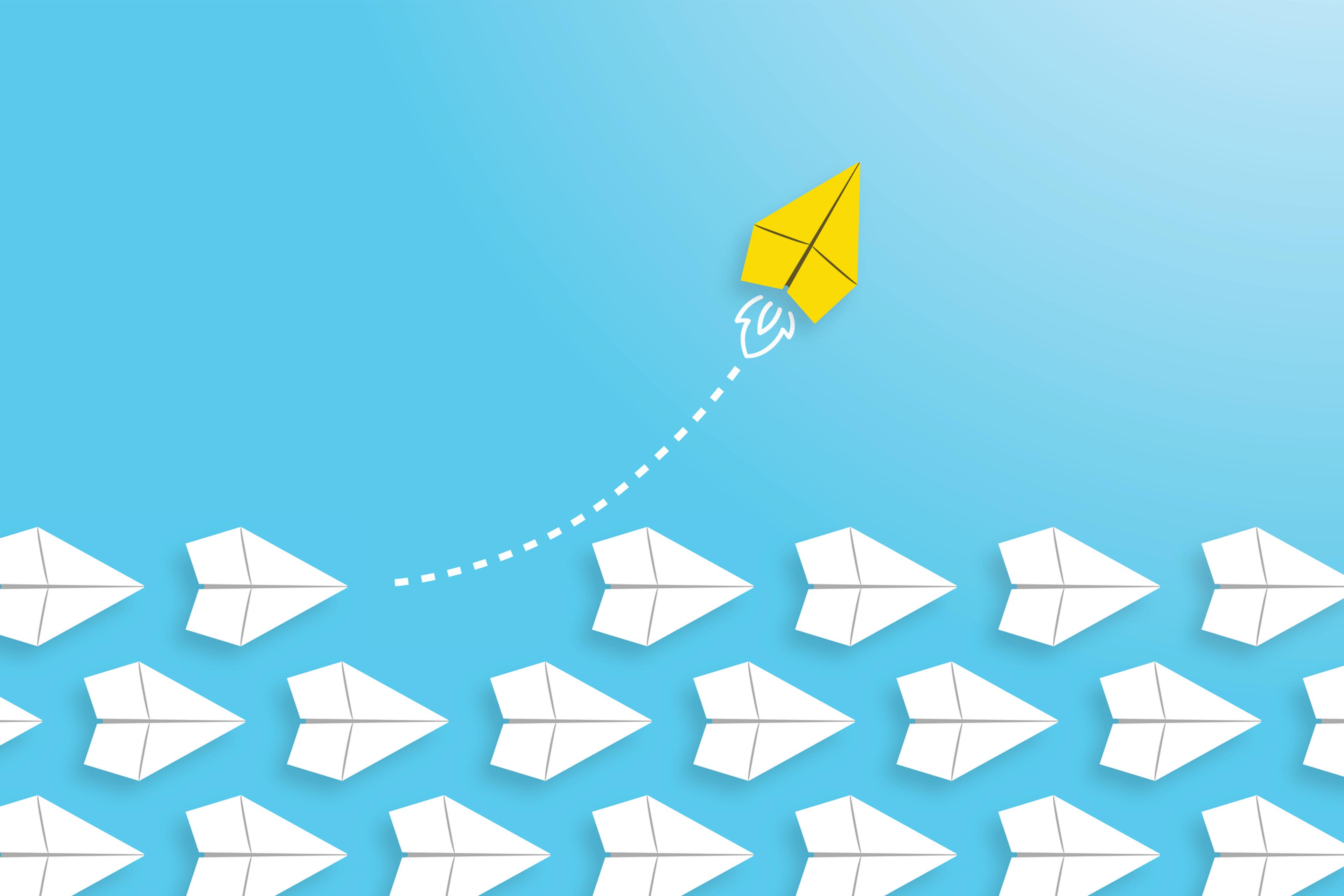Finding Balance in Life
| 1 min read

00:00
00:00
About the Show
On this episode, Chuck Gaidica and Cindy Bjorkquist discuss how to find balance in life through reducing our stress and becoming more resilient.
“I personally feel that balance and well-being, they require this constant recharging of your soul. Recharging of your soul is something that lifts you through day-by-day, and that you have to find what you’re passionate about.” – Cindy Bjorkquist
In this episode of A Healthier Michigan Podcast, we explore:
- Resilience and how to find balance through meditation and mindfulness.
- How we can turn inward to identify what part of our lives are out of balance.
- Balancing negative thoughts and staying resilient.
- How we need to unplug from our daily lives every now and then to better handle what’s thrown at us.
Transcript
Chuck: This is A Healthier Michigan Podcast, episode 12. On today’s show, we discuss finding balance in life.
Chuck: Welcome to A Healthier Michigan Podcast, the podcast dedicated to navigating how we could all improve our health and well-being through small habits, little things that we can start implementing right away. I’m your host, Chuck Gaidica. Each week, we’re going to sit down with a certified health expert from Blue Cross Blue Shield of Michigan and we’re going to look at all kinds of issues.
Chuck: We’ve covered nutrition, well-being, stress reduction, that’s coming up. I’ll talk about that a little, bit more, later on. In this episode, we’re talking about bringing all of these ideas that we can, that we’ve discussed so far, into balance, so we have a balanced life. Cindy Bjorkquist is back with us. She is director of health and wellness programs at Blue Cross Blue Shield of Michigan. Of course, we’re so happy that you’re back. This is … I’m going to be sad.
Cindy: It’s our last one.
Chuck: We have great experts on, happy to join everybody.
Cindy: Awe.
Chuck: It’s just been such a joy to be with you, because I’ve learned so much. I keep making so many notes …
Cindy: I know.
Chuck: of all the things you’re telling us. Let’s talk about, how do we go … Let’s go back. Episode seven I think is where you and I started. We’re now up to 12. This idea again, if somebody’s just joined us, the difference between well-being and wellness. Wellness was a phrase we used to hear a lot about. Now we’re, hearing about well-being, trying to get our life into balance right?
Cindy: Think about it, wellness has been around forever, physical health. We used to talk about this idea of balance and work/life balance. Have you ever …
Chuck: Oh sure.
Cindy: Listened to podcasts, listen to someone talk, about work/life balance. We did this for a year. We educated on how to do that. You know, it really doesn’t work. Think about it. You bring your work to life, to at home, and you bring your home stressors, if you have any, into work. Now, we’ve kind of, in the industry turned a little, bit and said, “You really can’t separate it.” Instead of doing work/life balance, you should be looking at resilience and mindfulness and all the things that we’ve talking about in all these podcasts, which actually broaden up to well-being. Look at your send of well-being.
Cindy: Now, we focus on, the well-being resilience and how to find balance through mediation and mindfulness and all of this. You want to focus on your joy and your sense of purpose. We talked about the Blue Zone books. Your emotions. You want to be positive. You want to be happy. Journal if you have to. You want to be empathetic towards others and mindfulness and mediation. This is how we’re trying to get our life in balance, as opposed to saying, “We have to have work/life balance.” It’s just a different approach.”
Chuck: We’ve talked about this. One of the things, it even struck me after your last episode. We, in the west, we in America in particular, we are sort of the rugged individualism idea. Pick yourself up by your bootstraps. What if you feel you’re off balance?
Cindy: Right.
Chuck: You’re out of kilter. Who would you say you should be seeking some guidance from? Obviously at work there could be somebody within HR, or if there’s one of these well-being programs. Often times, we intuitively know we’re a little off kilter.
Cindy: Yeah.
Chuck: Who should we go to first?
Cindy: I have a great example for this. I think the answer to that question is, you turn inward and try to identify what part of your life is out of balance. I think people know. Here’s my example. I went to a resort in Utah. I was climbing. I had this opportunity to go …
Chuck: Climbing a mountain.
Cindy: I was climbing a mountain and I had a guide. The guy said, “Hey. Are you going to this Labyrinth walk tonight, when the sun goes down?” I knew what a Labyrinth was … You walk in a circle in a field.
Chuck: Yeah.
Cindy: I had the opportunity to actually do this walk. While we were walking, we did exactly what you just asked me. You know what’s happening in your life. You can identify the different things in your life. You can assign those to a rock. If you visually think about this, it’s called a cairn. If you visually think about this, if you have six different parts of your life and you think you’re out of balance, you might have family and your elderly parents, or your children, different layers, right. As I was walking around this circle … We were shaking a gourd. It sounds weird, but it was so cool. We were shaking a gourd as we were walking around.
Chuck: You’re getting kind of weird on me.
Cindy: Yeah. You had your bare feet and the sun was going down. It’s Utah and it’s hot and everything. You had to identify the one thing in your life that was out of balance. Then, when you got done with that Labyrinth walk, we went into a field and we gathered stones and while you were piling on the exercise, you think about what you had out of balance in your life. The idea was that you, inwardly think about what’s out of balance. It could be your health …
Chuck: Are you verbalizing this to somebody else, or you’re just …
Cindy: No. You’re thinking about it. Yeah, Yeah.
Chuck: Thinking about it, praying about it. Mediating. Yeah.
Cindy: You’re meditating on it and being mindful and being focused about my rock layers are this. One of them might be health. We talked a lot on the podcast about how to improve your health, physical, spiritual, emotional, all of those things. You can figure out what’s out of balance and then you set a goal, and you try to target on how to get yourself back into balance. Again, this idea of the cairn, which is stacking those stones for balance, is just an exercise to help you think about it, to become aware of it. Then, you were to go back home, gather stones around your house, and then you were supposed to stack those stones, to have a visual reminder of yourself on a daily basis in your house.
Cindy: I had one in my office. I have one today, for 2018, which has a different layer of number of stones. They’re actually assigned differently, than they were back in 2015, when I went there. It’s the idea that, to keep your life in balance, with all the things we’ve talked about through this podcast, that fall under well-being, physical, emotional, spiritual, that when you’re out of balance, identify what it is, and then try to work towards re-correcting yourself, if you will.
Chuck: Let’s paint this picture, because I know what the rock cairn is. You’ve done it. It really is like this stack of pancakes, right?
Cindy: Yeah.
Chuck: You’re stacking these rocks. We’ve seen them. They’re being used in visuals now for different reasons.
Cindy: Oh yeah.
Chuck: You know, with a quote, something else. What is the old tradition here from Native American Indians?
Cindy: I actually looked it up when I was out there. I didn’t know what the definition meant. In the olden times, when Indians were out in the field, and in the forest, if you saw a pathway that branched into two different sections …
Chuck: The fork in the road.
Cindy: The fork in the road. They would put a cairn on the correct path. It gave you the idea that you had to go that way, go right, and don’t go left. That is kind of translated into mainstream thinking of, “If I build a cairn, I’m on the correct path.” Even my bracelet, this, I got this when I was in Utah. It says, trust your journey. It’s the same kind of thing that I’m trusting that I’m on a journey in life, and that I have all these things that I’m working on. I’m trying to maintain balance as I go through life. If something gets out of balance, I recognize it. I empower it. I try to change it, with what we’ve talked about in previous podcasts with rewiring my brain, going back to journaling again, helping myself out with that thing that’s out of balance.
Chuck: I guess where my question started was this idea that all of that makes sense to my brain, that we have the ability to do it yourself, in a way. And yet, there are times where you get overwhelmed, either it’s by anxiety, depression, something, where it’s okay though, to turn to a coach, a counselor, to God, to your spouse, right?
Cindy: Absolutely.
Chuck: I mean, there may be times where you need help getting back in balance.
Cindy: I think a lot of this well-being construction and development of classes is bringing people down to them taking the accountability to one, understand where they are in life and things they need to change, habits or behaviors, and then giving them tools and resources that they need to help them. It could be something as simple as journaling on a piece of paper. It could be watching a variety of … You could watch Ted X’s. There are amazing Ted X’s on there, on people that are doing neuroscience and how to change behavior. There are happiness Ted X’s.
Cindy: There’s a lot of stuff out there, to empower yourself, to understand what you have to do, to maintain your balance and a high sense of well-being. It could be something as simple as … I’ll give you another example. When I came back from Utah, and I was thinking about my life and balance and raising two boys and all of this kind of stuff, I was in the car with … I identified when I was out there, that I’m not present enough with my kids …
Chuck: Okay.
Cindy: that I still work at night, a lot. I need to be more present. I was in the car, seven o’clock at night, going to dinner with Shea, my son. He was maybe 13 at the time. I was on a phone call at night. 7 pm, right, going to dinner with him and I’m on a phone call with one of my managers. We’re having this exchange. I see him reach into the glove box and he pulls out a band aid. I’m looking at him out of the side of my, you know, what is he doing? He’s got a band aid. He gets a pen, and he actually writes on the band aid, leave your drama at work. Now, how perceptive is that?
Chuck: Wow.
Cindy: He was way more mindful than I was at that present moment. He’s like, “You know what, we’re having a moment here, mom/son, going to dinner, seven o’clock at night. Your drama is influencing me, and so you need to leave it at work, and we need to have this better kind of relationship.”
Chuck: Wow.
Cindy: That’s kind of … We’re not talking about huge goals here, that people can’t do. It’s about relationships, and my physical health. It broadens into my mind, and how I deal with other people. All of this stuff is exploding in the industry under well-being.
Chuck: How much … You pointed this out in the last podcast. How much of the exterior, the external stressors, can influence our work life and vice versa. You said it again today. I’ve got a buddy who … He eventually wrote a book, but I remember talking to him. He’s a coach, like a life coach. He said to me, “I really had to work hard at something.” I said, “What were you working at in your life?” He said, “I kept trying to keep up with the Jones’s.” Do you know what the name of his book is? Who are the Jones’s anyway?
Cindy: Oh, I love that.
Chuck: I mean, why are we going through our entire lives, worrying about the neighbor who got a new BMW? Who are they anyway?
Cindy: That’s right.
Chuck: I mean, why am I keeping up with people I don’t even know? I thought, “How brilliant is that?”
Cindy: Absolutely.
Chuck: He was able to influence his own life, by getting rid of that stressor, that because he was leading a rather successful life at the time in corporate America, I have to keep running. I just have to be on the treadmill. He said, “Oh, heck with it.”
Cindy: Think about that you never have that sense of accomplishment. You’re always reaching for something more.
Chuck: Great.
Cindy: Yeah. How stressful that is in itself.
Chuck: Yeah.
Cindy: Wow.
Chuck: Let’s talk about this idea of avoiding negativity. You’ve come back to that over and over again. Sometimes it’s easier than other times, because we can tend to fall into gossip. We can tend to fall into just talking gibber jabber about something that we don’t have any control over. How do we balance that idea of, negative thoughts making us resilient, you know, kind of buffering us. It’s a workout. At the same time, we know that we have a tendency. I mean, that’s what TV news is all about. Just give me some bad news and I’ll watch it.
Cindy: No. It’s funny you mention news. The child that told me, that wrote on the band aid, leave your drama at work, Shea.
Chuck: Yeah.
Cindy: He actually does not watch national news. There’s actually some research on this too, where, think about it. You get home at night. You’ve had a, really pressure day. You turn the news on. It’s all negative. I mean, almost all of it is negative. You get to the very last …
Chuck: Except the weather.
Cindy: Well the weather …
Chuck: which was a … I made a career of that idea.
Cindy: You’re a weather man. Yeah. You know how in newscasts they have the last two or three minutes, or five minutes of something positive to leave you with.
Chuck: We call it the kicker story.
Cindy: The kicker story.
Chuck: We want to leave you smiling.
Cindy: I want to just block everything out and get to the kicker story. It is about negativity turning to positive. Positive emotion, positive relationship, and how do you get there.
Chuck: Yeah.
Cindy: There are a subset of the population, who wake up every morning and they’re positive and they’re happy and they’re very lucky to be in that state. For those people that aren’t like that, they do need to help themselves and I think the biggest message here is that, you can change your brain. We’ve talked about that a lot. There is research to substantiate that, that if you want to rewire your brain, to be a happier person, to affect your social network and your family and your friends …
Chuck: Yeah.
Cindy: That you can do that from a lot of the things we talked about. Journaling, and hanging out with people who are social contagious. You deciding, that every day, that you’re going to be more empathetic to others, which is going to affect you.
Chuck: Right.
Cindy: There’s all these things that we talked about, under this well-being umbrella, that actually will help you counteract that negative thought, that keeps trailing through your mind. That’s hard. Anxiety and depression, that’s a part of this, but when you talk about anxiety and depression and what clinical people are doing in that realm …
Chuck: Yeah.
Cindy: I actually presented the other day, after … Oh no, before somebody was talking about that, they said, “You know, ironically, a lot of this mindfulness research and meditation is exactly what we tell our patients to do.” Free phone apps are out there for meditation and mindfulness. Those are things that people can do today or tomorrow, that don’t require a lot of money. They don’t require to, go to a workshop or something. It’s quick hit things like that, that they can do.
Chuck: I shared with you, a member of my family has high blood pressure issues. We were able to get an iPad together. Nice visual images, mostly of nature and beautiful music, and to watch the blood pressure drop from a very high level, and steadily ratchet itself down over the course of, I’ll give it 10 to 15 minutes, right? I mean, astounding in terms of the amount of time, of just sitting there, breathing in and out deeply and looking at this. I was blown away. Not that I was a doubter …
Cindy: Yeah.
Chuck: But I just watched it happen before my eyes. While that’s not necessarily related directly to negativity, I think you can calm yourself down in so many ways, if you allow yourself to, as you put it here at the beginning with that great quote. You can unplug.
Cindy: Yeah.
Chuck: You can unplug the vacuum cleaner, and it’ll start again tomorrow, if you plug it back in.
Cindy: That’s a good analogy. It’s a really good analogy. Based on what you just said, one of the things that I love to do, besides running, cause I just go to another place when I run, is walking in trees. Have you ever tried this? There’s also some research about, anxiety and depression and counteracting that, walking in nature, and how we’re so detached from that.
Chuck: Yeah.
Cindy: Maybe tomorrow, go find yourself, you know, a woods, or a hiking/nature trail, and just get out in the trees and enjoy nature.
Chuck: That is so funny.
Cindy: It’s easy.
Chuck: My 31 year old’s … Our 31-year-old son called me yesterday and he said to me, “Dad, so what are you doing Saturday? My wife’s out of town. A good friend of hers lost her husband, so she’s there supporting her friend.” I said to my son Matt … I said, “I don’t know. I’m not really doing much Saturday morning.” He said, “Dad. How about we grab our shoes, we just go for a nice hike through Mayberry State Park.”
Chuck: It’s just going to be the two of us. The other kids are somewhere else or busy. I can’t tell you … I’ve already thought of this in advance. I don’t care if it’s pouring rain … I mean, short of some kind of big thing. I don’t care what’s going on. That is my time to be with my boy. I’m thinking about walking through the woods. I got calm after the phone call. I’m not even in the woods yet.
Cindy: Isn’t that awesome?
Chuck: Yeah.
Cindy: Yeah. Oh, that’s an awesome story.
Chuck: Yeah. All right, so let’s bring it all home here. We’ve talked about all these things in previous episodes, finding balance. We’re going to move into some medical advice here, coming up shortly. As you look at all this research you’ve had, what are the parting words of wisdom, so you don’t have to write them on a band aid, like your wise son.
Cindy: Oh. Absolutely. Probably for people to understand that there’s the physical, that they have to take care of themselves physically. Beyond that, it’s the mental and emotional and all the things that wrap around what we had these podcasts about. You know, one thing, talking about the balances. I personally feel that balance and well-being, they require this constant recharging of your soul. Recharging of your soul is something that lifts you through day-by-day, and that you have to find what you’re passionate about.
Cindy: If you could experience that sense of purpose and that passion throughout your life, then you’re going to have a higher sense of well-being. Understand where you are today. Make small changes, and try to change the habits. Try to change your social connections, but really think of yourself and your passion and your sense of purpose. You got to recharge yourself. Take that vacation.
Chuck: Yeah.
Cindy: Get out in the woods. Really experience life. Life is wonderful. It’s a great gift.
Chuck: Well, it’s been wonderful sharing these microphones with you the past several episodes, so thanks Cindy Bjorkquist.
Cindy: Oh, right back at ya.
Chuck: She is the director of health and wellness programs at Blue Cross Blue Shield of Michigan. We want to thank you for listening to A Healthier Michigan Podcast. It’s brought to you by Blue Cross Blue Shield of Michigan. If you like what you’ve heard, maybe you want to go back and listen to another episode. Go to ahealthiermichigan.org/podcast. You can also leave a review or a rating there on iTunes and Stitcher. You can get all the episodes downloaded on your smart phone or on your tablet. You can use your favorite app, or you can go to Apple Podcast, or Stitcher and do it there.
Chuck: Next week, we’re going to talk about something … We shift gears just a bit. Our next episode, we’ll get into stress reduction. We’re going to talk about it, not just from the mindfulness and the well-being side, but also the physical nature. Dr. Duane DiFranco will be joining us. We hope you tune in then. Thanks so much for being with us.





